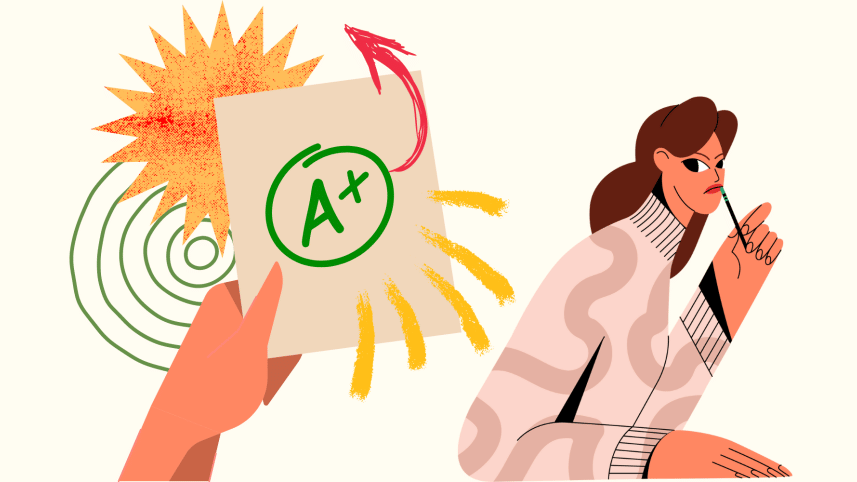The role of envy in a student’s life

It's easy to compare yourself to people you think are better than you. This is especially true for a young person navigating through their academic life. Our fellow students are the first competitors we face in life – striving to not only do well, but always better than the next person. But what happens when a rival morphs, slowly and insidiously, into an object of envy?
Academic envy is a feeling many of us are intimately familiar with, but may not always want to accept. After all, it is difficult to recognise bitterness and resentment towards a peer for something we do not have - be it good grades, achievements, or even popularity - let alone try to deal with it in a healthy and self-focused way.
There are many ways academic envy can manifest in a young person's life; it could develop after one's hard work does not match up to a peer's results, when one finds themselves obsessively tracking others' progress, or even as a consequence of parental comparison.
Mithila Das, a student at Maple Leaf International School, shares, "I am not a bright student, and I have actually never been. But my parents' constant jabs at my grades have not only been mentally and physically cruel, but have built up a resentment in me. I do feel genuine happiness for my friends' successes, but I keep thinking - why not me?"
Acknowledging resentment of this kind can be difficult. In this regard Tajrian Mahabub, a private A level candidate, says, "I am a chronic over-thinker, so I knew from day one that I deeply envied a particular person. But no matter how guilty I felt about it, I couldn't shake off that feeling."
Even if you understand what you are struggling with, dealing with the impacts this situation is having on your life is a far larger challenge. The emotional toll is severe. Losing motivation, falling behind on work, failing to take care of yourself and your own room, and feeling worthless becomes routine; according to Mithila, "It makes me believe no matter how hard I ever work, it will never pay off, because my effort just never feels or is enough."
On an interpersonal level, envy within academic circles can lead to conflict. "There is one person my parents constantly compare me to. So even though we practically grew up together, we still see each other just as 'classmates' instead of friends. Because of this toxic dynamic, I ended up demeaning him for his weaknesses in a certain subject all the time, to the point it made him leave that class," lamented Taseen Dhrubo Bakht, a grade 12 student.
However, recognising one's own envy is a necessary step towards self-growth. Mariyam Tilma, an A Level student, says, "I find it normal to be jealous of people when they do better than you. I try to take it as motivation to work harder, and analyse what they did, and what I can do to achieve what I want to. At the end of the day, I just have a good time with the people I have to compete with, instead of letting the negativity of my feelings affect the friendships I have."
In the end, there are a lot of different ways to deal with this struggle. Naturally, the key is to focus on yourself and your own wellbeing.
"Everyone has their own pace in everything they do. Some can comprehend faster, and some need more time. It is not your fault. You and someone else are not the same - all that matters is whether you've improved yourself. Have fun, make friends, and don't confine yourself to academics. It goes a long way," added Tilma.
More ways to help yourself heal are to enjoy what you study rather than just focusing on results, so that you feel proud of what you achieve from your own effort. If you struggle with maintaining a healthy relationship with someone you are jealous of, distancing yourself from them until you reach your personal standards can help if talking about it with them does not.
Envy is an emotion and process that is deeply complex in the ways it changes our lives and our own self-esteems. It is also not linear; feeling a stab of hurt, disappointment, or bitterness over another person's success even after you feel like you have come to terms with your struggle can be horrible, but it does not mean you have failed to become a more self-assured person. There is nothing to be ashamed of in the process of trying to love yourself as an individual and not as a reflection of someone else. All there is to do is move forward, and keep trying your best - for yourself, and no one else.
Nadera Naeema Ohi is an A level student at Maple Leaf International School.



 For all latest news, follow The Daily Star's Google News channel.
For all latest news, follow The Daily Star's Google News channel.
Comments